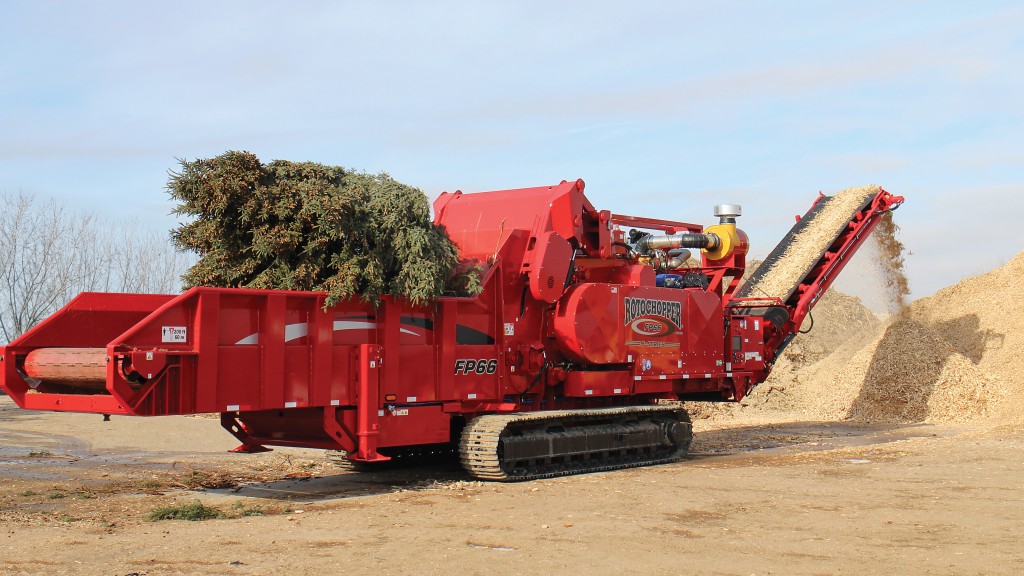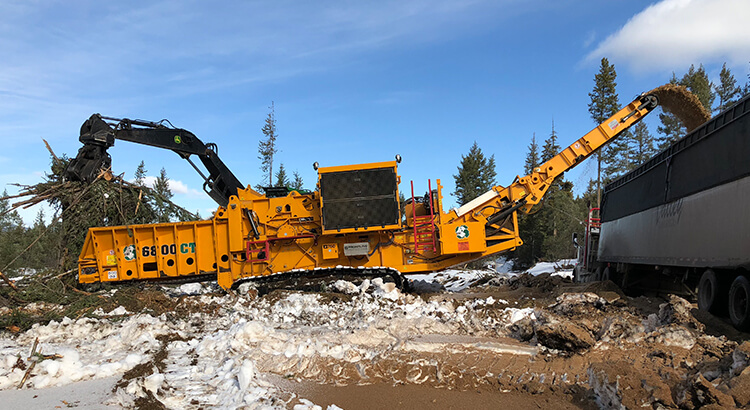Open the Prospective of Reusing With Advanced Wood Grinders: Streamline Operations and Minimize Waste
In today's world, the demand for effective waste monitoring and sustainable options has actually ended up being significantly important. One such option that holds fantastic guarantee is the advanced timber grinder, a modern technology that has the prospective to open the real capabilities of reusing. By improving procedures and decreasing waste, these grinders offer an unique approach to tackling the difficulties of wood waste handling. Yet what specifically makes these machines so powerful? Just how do they improve reusing operations and take full advantage of source use? And perhaps most importantly, just how do they add to decreasing our ecological impact? In this discussion, we will certainly check out the solutions to these concerns and clarified the untapped possibility of advanced timber grinders in transforming the reusing industry.
Efficient Timber Waste Processing
Effective wood waste handling is critical for simplifying reusing procedures and making best use of the use of this useful source. Wood waste, such as timber, lumber, and pallets, is a significant byproduct of various markets, including construction, furniture manufacturing, and demolition. To efficiently reuse this waste and manage, advanced wood grinders have become a crucial option.
Advanced timber grinders are created to efficiently refine wood waste into reusable products, such as wood chips or compost, which can be made use of for various purposes. These mills make use of powerful cutting devices and advanced shredding technologies to break down wood waste into smaller, much more workable items. By lowering the dimension of the waste, the grinders assist in simpler transport and storage.
Along with size reduction, advanced wood mills likewise play an essential duty in dividing pollutants, such as screws and nails, from the wood waste. This guarantees that the processed material is cost-free and tidy from impurities, making it ideal for a vast array of applications.
Efficient wood waste processing not only assists streamline recycling operations yet also decreases waste. By handling and recycling timber waste, companies can reduce their dependence on virgin sources, save energy, and minimize the ecological influence connected with conventional garbage disposal techniques.
Sustainability in Waste Administration
Advertising sustainable practices and ecological obligation, waste monitoring in the context of timber processing involves implementing eco-friendly and effective approaches. In today's world, where environmental concerns go to the forefront, it is crucial for industries to embrace sustainable waste administration practices. With the boosting need for wood products and the subsequent rise in timber waste, it has actually come to be imperative to find innovative options that lessen the influence on the atmosphere.
By implementing effective timber grinding methods, such as utilizing advanced wood grinders, the industry can significantly decrease the quantity of waste created. These mills are qualified of processing large amounts of timber waste right into smaller, more workable pieces, which can after that be repurposed or reused.
Secondly, sustainable waste administration concentrates on reusing and recycling products whenever possible. Wood waste can be transformed right into useful sources such as biomass gas or compost. By repurposing timber waste, the industry can decrease its dependence on virgin materials and lessen the need for landfill space.
Finally, sustainable waste monitoring involves reducing the ecological influence of waste disposal. Timber waste that can not be reused or recycled need to be disposed of in an environmentally liable fashion. This may include proper sorting and partition of waste, as well as making use of technologies that convert waste right into power via procedures like anaerobic digestion or incineration with power healing.
Improved Recycling Workflow
To maximize wood waste monitoring and make the most of reusing initiatives, the execution of advanced timber grinders is crucial for enhancing recycling operations (wood grinders). These devices offer a variety of advantages that can significantly improve the performance and efficiency of reusing procedures
One of the my link key benefits of sophisticated wood grinders is their ability to refine a variety of timber waste materials. From pallets and crates to tree branches and stumps, these grinders can efficiently damage down wood waste right into smaller, much more workable pieces. This not only helps with much easier transportation and storage but likewise allows the recycling of a higher quantity of timber waste.

Additionally, advanced wood mills are equipped with attributes that boost security and reduce downtime. These equipments are developed to operate effectively and dependably, reducing the requirement for maintenance and repair services. This enables recycling procedures to run efficiently and regularly, ultimately raising efficiency and lowering expenses.
Optimizing Resource Application
With the ability to efficiently refine a wide variety of timber waste products, advanced wood mills play a crucial duty in making the most of resource application within recycling operations. These makers are created to successfully convert timber waste into useful wood chips or mulch, which can after that be used in various markets such as landscape design, biomass energy production, and animal bed linens.
By using sophisticated timber grinders, recycling operations can considerably decrease the amount of wood waste that finishes up in landfills, assisting to conserve beneficial land fill space and minimize ecological effect. The processed wood waste can be repurposed and utilized as a renewable energy, adding to an extra sustainable and round economic situation.
Moreover, advanced wood grinders allow recycling procedures to remove the optimum worth from timber waste materials. These makers have the ability to generate high-grade and constant timber chips or mulch, which can be marketed as important products out there. This not only produces see income for recycling operations but also develops opportunities for the advancement of brand-new markets and collaborations.
In addition to taking full advantage of source usage, progressed timber grinders likewise add to the total efficiency of reusing operations. These equipments are designed to take care of large volumes of timber waste promptly and successfully, reducing handling time and labor expenses. They also have safety and security features and progressed technologies that make sure trustworthy and smooth procedure, lessening downtime and optimizing efficiency.
Lowering Ecological Footprint

Among the crucial benefits of using sophisticated timber mills is the production of valuable items from wood waste. These grinders have the capability to convert wood waste right into wood chips, compost, or biomass fuel, which can be made use of in different industries such as landscaping, building, or power production. By changing waste right into useful items, these mills add to a more lasting and round economic climate.
In addition, progressed timber mills are equipped with innovative technologies that boost their performance and lower energy consumption. They are created to manage big volumes of timber waste in a short amount of time, permitting recycling operations to simplify their procedures and boost performance. This not just decreases the environmental impact of reusing operations however additionally boosts the overall effectiveness of timber waste monitoring.
Final Thought
In verdict, websites progressed wood mills offer an appealing remedy to unlock the possibility of recycling by improving procedures and decreasing waste. These mills make it possible for reliable timber waste handling, enhance recycling operations, make best use of resource usage, and lower the ecological impact. wood grinders. By embracing these modern technologies, companies can add to a much more sustainable waste monitoring system, guaranteeing the reliable usage of resources and lessening ecological impact
